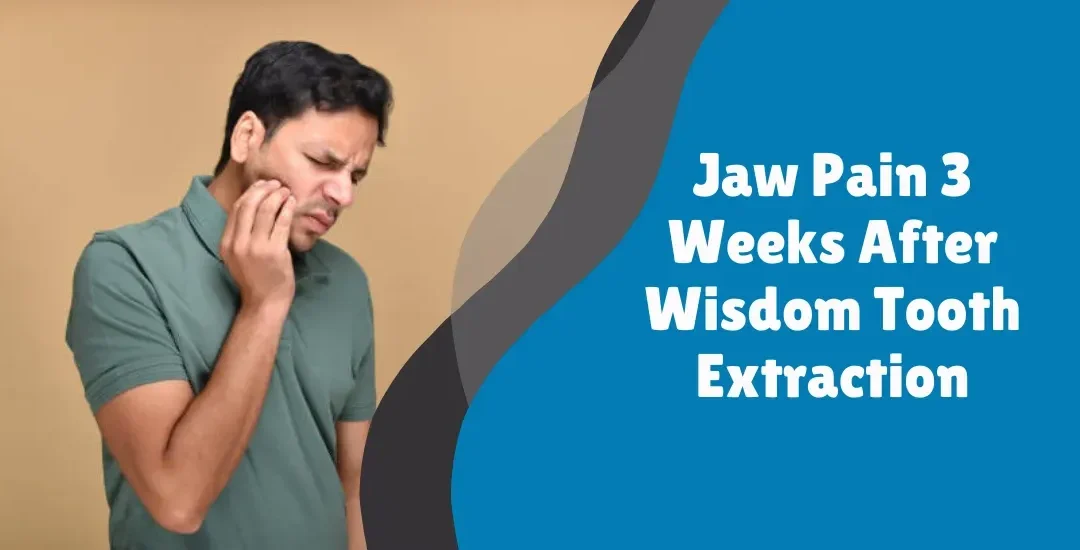Wisdom tooth extraction is a common dental procedure to address overcrowding, impaction, or recurring infections. While the surgery often alleviates discomfort, some individuals may experience jaw pain, especially jaw pain 3 weeks after wisdom tooth extraction. This type of pain is not uncommon and can be caused by various factors related to the healing process.
According to Dr. Alisha Khan, a dentist in Chembur, explains:
“Mild discomfort is common, but persistent jaw pain 3 weeks after wisdom tooth extraction might require attention to rule out infections or other issues.” If you’re experiencing jaw pain after wisdom tooth extraction, understanding its causes and solutions can help alleviate your concerns.
With over 10 years of experience, Dr. Alisha Khan, a prominent dentist in Chembur, is renowned for offering effective and advanced treatments tailored to individual needs. Patients benefit from state-of-the-art equipment and a compassionate approach that prioritizes their comfort and well-being.
Is your jaw pain making daily tasks difficult? Let’s explore if it’s normal or a cause for concern!
Is It Normal to Have Jaw Pain 3 Weeks After Wisdom Teeth Removal?
Jaw pain 3 weeks after wisdom tooth removal is not uncommon, but it may warrant a closer look. During extraction, the jaw undergoes stress, which can lead to temporary soreness. However, prolonged pain could indicate complications like dry socket, infection, or TMJ (temporomandibular joint) issues.
Some patients may experience jaw stiffness, making it difficult to open their mouth fully. While mild discomfort often resolves on its own, persistent pain should not be ignored. An expert evaluation can help identify the cause and determine the most effective treatment. Early diagnosis is key to avoiding further complications.
Get relief from persistent jaw pain today. Consult a professional for timely diagnosis and care. Book an appointment now!
Common Reasons for Jaw Pain 3 Weeks After Wisdom Tooth Extraction
Dry Socket: A condition where the blood clot dislodges, exposing nerves and bones.
Infection: Bacterial buildup in the surgical site leading to inflammation and discomfort.
Jaw Stiffness: Muscle strain or limited movement due to prolonged jaw opening during surgery.
Nerve Sensitivity: Irritation or minor nerve damage around the extraction area.
Minor Pain: Residual pain is common, especially if healing is slower than expected.
Mild Sore Throat: With lower wisdom teeth extractions, the surrounding tissue can cause a mild sore throat.
Jaw Pain: Muscle strain from keeping the mouth open during extraction can result in jaw pain 3 weeks after wisdom tooth extraction, especially if the extraction was complex.
Preventing Jaw Pain 3 Weeks After Wisdom Tooth Extraction

Follow Post-Operative Care: Adhere to the instructions provided by your dentist.
Maintain Oral Hygiene: Regularly rinse with salt water to prevent infections.
Avoid Strenuous Activities: Avoid chewing hard foods and overexerting your jaw.
Use Cold Compress: Reduce swelling and numb pain with ice packs.
Take Prescribed Medications: Follow the prescribed pain relief and antibiotics schedule.
When Should You See a Dentist About Jaw Pain?
Seek immediate dental attention if you experience:
- Severe or worsening pain.
- Swelling that doesn’t improve.
- Fever or chills, indicating infection.
- Difficulty opening your mouth completely.
- Persistent bleeding or unusual discharge.
“Delaying treatment may worsen the condition and complicate recovery. Hence, it is essential to consult a specialist for prompt diagnosis and tailored care,” advises Dr. Alisha Khan, an esteemed dentist in Chembur.
Treatments for Persistent Jaw Pain After Wisdom Tooth Extraction
Pain Relief Medications: Over-the-counter or prescribed medications can manage discomfort.
Physical Therapy: Exercises and stretches can relieve jaw tension and improve movement.
Antibiotics: If infections are present, antibiotics can help clear them up quickly.

Surgical Revision: Rarely, additional surgery may be required to remove bone fragments or address other complications.
Lifestyle Adjustments: Avoiding stress on the jaw can help prevent recurring pain.
Your dentist will recommend a treatment plan based on the cause of the pain.
Get a personalized treatment plan for persistent jaw pain. Consult a specialist to ensure the best outcomes. Book an appointment now!
Managing Jaw Pain 3 Weeks After Wisdom Tooth Extraction
Here are some effective ways to manage jaw pain:
Rest and Recovery: Avoid strenuous activities to give your jaw time to heal.
Apply Ice Packs: Reduce swelling and pain with regular ice applications.
Stay Consistent with Medications: Follow prescribed medications as directed.
Gentle Jaw Exercises: Loosen tight jaw muscles with dentist-recommended exercises.
Seek Professional Help: Persistent pain requires a dental evaluation.
Take control of jaw pain with expert advice. Consult a specialist for effective solutions today. Book an appointment now!
Persistent Jaw Pain? Consult a Dentist in Chembur
Frequently Asked Questions:
How to fix lockjaw after wisdom teeth removal?
Why does my jaw still hurt 3 weeks after tooth extraction?
How do you treat a jaw infection?
Why does my tooth extraction still hurt after 3 weeks?
How long does it take for jaw muscles to recover after tooth extraction?
How do I clean the extraction site?
Can wisdom teeth removal affect jaw alignment?
Reference links:
https://www.medicalnewstoday.com/articles/321657
https://www.clintonpt.com/2024/02/22/jaw-pain-after-tooth-extraction/
Disclaimers: This page is for informational purposes and not for promotional use.

